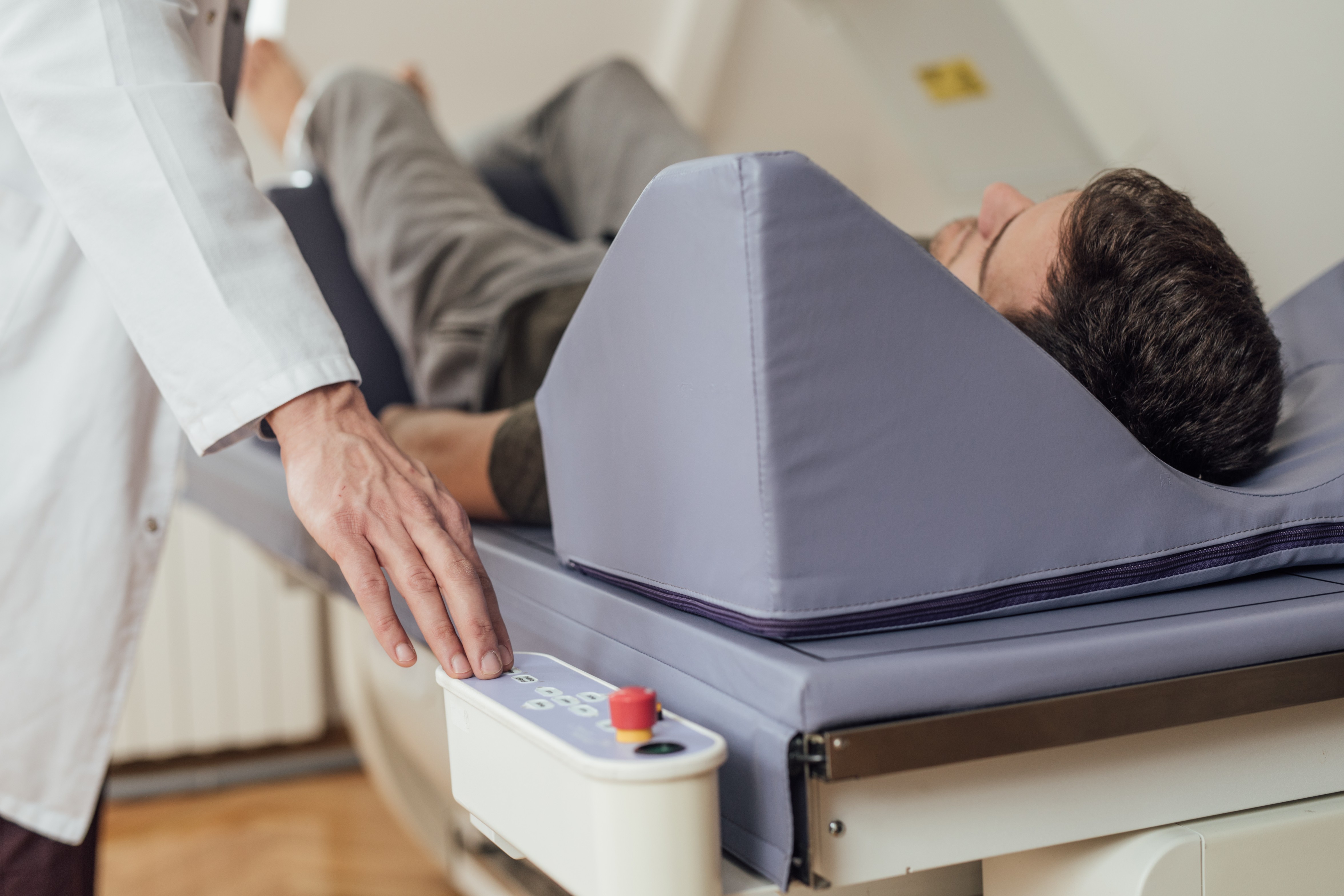
- Health Hub
- /
- scans

Most people experience bone thinning as they age–this is called osteopenia (and, yes, it’s completely normal). However, osteopenia can place you at a greater risk for osteoporosis, which is a disease that thins and weakens the bones. Bone density scans help doctors to measure the health and strength of your bones, and allow them to spot any abnormalities.
If you’re wondering whether you may have osteoporosis or another medical condition related to bone health, your doctor may recommend that you receive a bone density scan. Read below for a breakdown of what this scan is, what it does, and who might be the best candidates for this scan. This article will also cover what the top benefits are of getting this scan (hint: there are many, and we’ve only listed a few).
A bone density scan (DEXA scan) is a type of X-ray scan that measures calcium and other mineral levels in your bones.1 This type of scan uses very low doses of ionizing radiation to capture pictures of the bones (usually the hips or lumbar spine). In turn, this helps radiologists and doctors understand how strong or weak your bones are, whether you’re experiencing bone loss, and identify conditions such as osteoporosis, infections, and some cancers. Other names for bone density tests might include:
A bone density test reveals your calcium levels and the levels of other minerals in your bones. Bone density tests are usually used for the following purposes:2
However, sometimes doctors might use bone density tests for other purposes.
If you are a woman over the age of 65, it’s best for you to receive a bone density scan as soon as possible. Your doctor may also recommend that you receive routine follow-up bone density scans as you grow older.3 Other reasons to get a bone density scan might include:
To prepare for your bone density test, you’ll want to first speak with your physician as to whether this test is right for you. Other than that, a bone density test doesn’t require a lot of preparation. Most of all, make sure to take off your jewelry before the scan, wear comfortable clothing that is void of metal (such as zippers), and let your doctor and radiologist know if you’re pregnant or could be pregnant. You should also avoid calcium supplements for at least one full day before your test.
You can find a bone density scan center near you by using scan.com. Our innovative search function gives you access to an expansive library of reputable X-ray providers in your area. Our search tool helps you easily locate bone density scan centers and their contact information so that you can call to discuss if they are a good fit for your personal scan needs. To quickly find the bone density scan center fit for you, use scan.com’s scan search tool today.
No, bone density tests generally do not show arthritis.
Yes, sometimes bone density tests can show cancer, along with fractures, infections, and osteoporosis.
Resources: